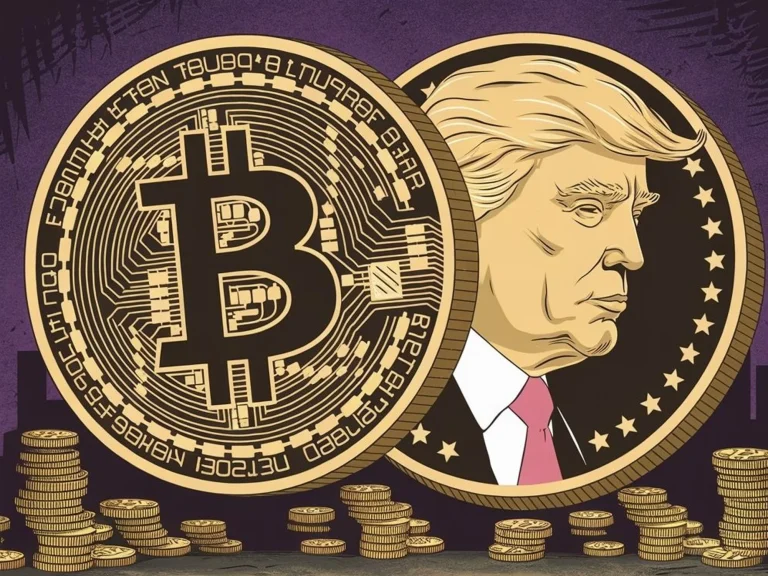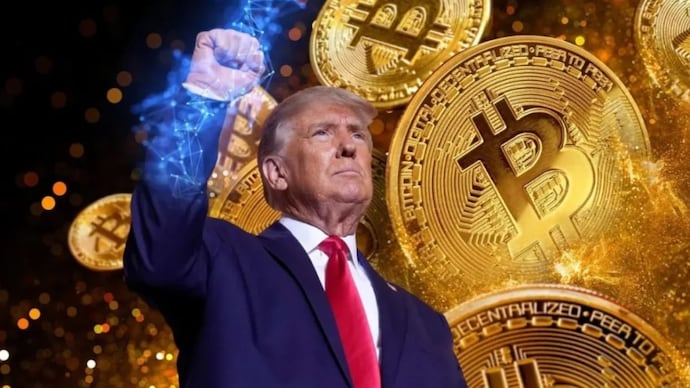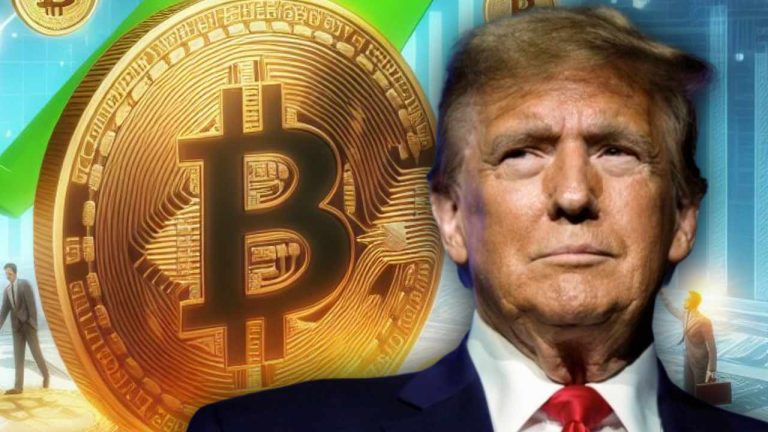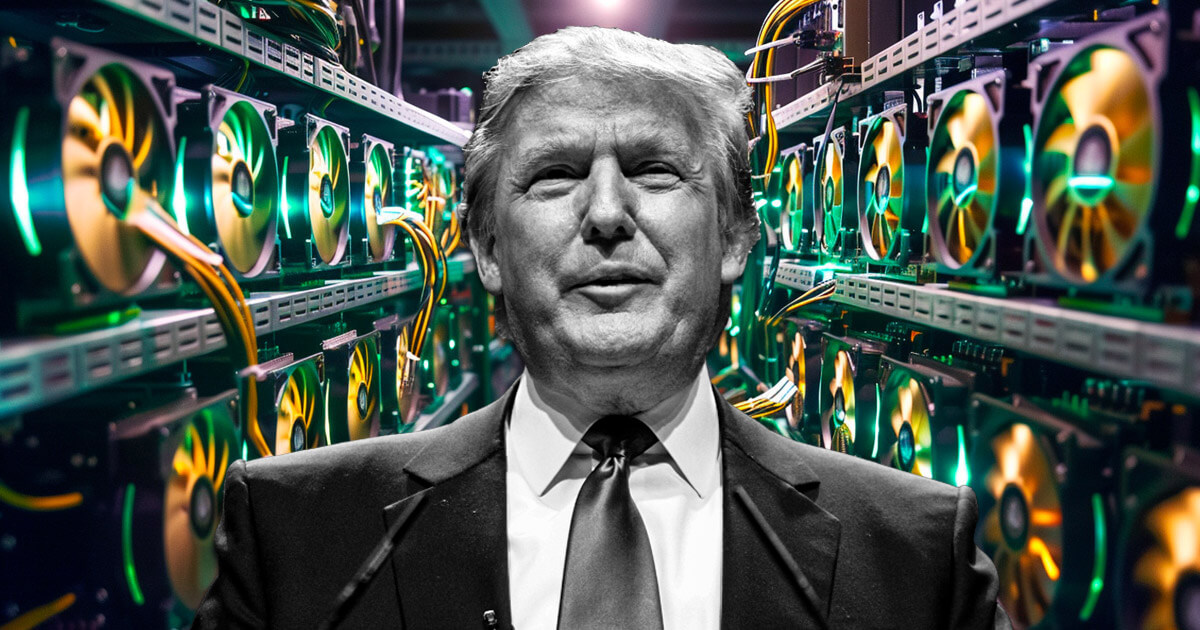US Elections are just around the corner, and the race between the two candidates is very tight. The whole world is watching closely, driven by concerns over global security and economic stability. Meanwhile, the crypto community has its own perspective on what’s at stake.
Let’s take a look ahead and explore how the crypto market might evolve under Democratic candidate Kamala Harris or Republican candidate and former President Donald Trump.
If you check X (former Twitter), the first impression you may get is that Trump is all pro-crypto while Harris is somehow against it. Well, this is not just driven by the fact that X is owned by Elon Musk, who now openly supports Trump – the truth is that the former president is indeed more crypto-friendly, but Harris is now chasing the crypto vote too.
I mean, how can she ignore crypto? A recent report from Public Citizen found that crypto firms had spent nearly $120 million in 2024 to influence federal elections, which represents 44% (nearly half!) of all corporate money distributed to Political Action Committees (PACs).
However, despite the major differences in how the two would approach crypto regulation, neither candidate can halt the rapid adoption of blockchain and crypto use in the US, and that’s what really matters for the industry.
How Will the Crypto Market Unfold Under Trump?
A few years ago, Bitcoin seemed to be a scam to Trump, but now he is a crypto convert.
In July 2024, the former president attended the Bitcoin Conference in Nashville, Tennessee, providing a headline speech during which he complained that the US government had violated the main rule that every Bitcoiner knew by heart: ‘Never sell your Bitcoin.’
He went further to say:
“This afternoon I’m laying out my plan to ensure that the United States will be the crypto capital of the planet and the bitcoin superpower of the world and we’ll get it done.”
For Trump, Bitcoin is not simply a novelty to the financial world. He suggested that the cryptocurrency could be used to somehow address the $35 trillion national debt.
These may be some bold and populist statements, but with Elon Musk on his side, Trump is definitely expected to lay out a crypto-friendly regulatory framework.
While it’s difficult to anticipate specifics of a Trump-style crypto framework, he said during the Nashville conference that the current crypto rules in the US were overly strict. In fact, he pledged to fire Securities and Exchange Commission (SEC) chairman Gary Gensler for his tough stance on the crypto industry. Trump said:
“We will have regulations, but from now on the rules will be written by people who love your industry, not hate your industry.”
Meanwhile, Trump has recently launched his own crypto venture called World Liberty Financial. The business helps users “maximize” their crypto holdings. Trump’s two eldest sons, Donald Jr. and Eric, are also involved with the platform.
Sources say that World Liberty is developing a proprietary stablecoin, while Trump is known for opposing the Federal Reserve’s potential plan for a Central Bank Digital Currency (CBDC).
Trump is seen as a strong supporter of the crypto industry, with his actions demonstrating a commitment that has earned him the favor of many crypto enthusiasts.
What Will the Crypto Market Look Like Under Harris?
With record amounts of crypto-related money poured into the election campaign, Kamala Harris couldn’t maintain a tough position on crypto like Joe Biden did.
At the end of September, the current VP finally expressed her public support for cryptocurrencies. She said that she would endorse emerging technologies, including artificial intelligence (AI) and digital currencies.
So far, that’s all that we got from her. If Harris is serious about the crypto industry, she will have to present her plans to bring crypto clarity. The industry has faced many challenges due to conflicting rules coming from the SEC and the Commodity Futures Trading Commission (CFTC).
For Congressman Brad Sherman, a California Democrat who is regarded as one of the top crypto critics, Harris is trying to find a balance between crypto bashers and supporters. The fact that she hints at deviating from Biden’s tough narrative and seeking support from the crypto community doesn’t guarantee crypto-friendly regulations after her election. Sherman said:
“This is a political season. The crypto people are flashing huge amounts of money. We know they’re playing big. If that means they get a meeting, they get a meeting. They get three meetings, they get three meetings. But ultimately I think that Harris will stand firm.”
In mid-October 2024, Harris openly announced her support for cryptocurrencies as part of her ‘Opportunity Agenda’ initiative, but she shared no further details since then.
What’s Next for Crypto?
The crypto approaches of Harris and Trump differ, with the latter being favored by most crypto supporters.
Trump might change the face of crypto in the US, indeed. He already has a crypto venture, which some say raises concerns about conflicts of interest, but he’s well aware of the benefits of crypto and blockchain.
In June, crypto billionaire twins Tyler and Cameron Winklevoss, who co-founded popular crypto exchange platform Gemini, said that they had each donated $1 million in Bitcoin to back Trump’s campaign. For them, the Biden administration had “openly declared war against crypto.”
As of the end of October, it’s difficult to predict who will become the next president, as the race is very tight. Most polls show that Harris is 1% ahead of Trump, but blockchain-based prediction market Polymarket gives Trump a 66% chance based on almost $1 billion worth of bets from its users. This is another sign that the crypto world tends to favor Trump.
While Trump might be the better candidate for crypto, no matter what happens on Election Day, the US crypto landscape will continue to evolve. The blockchain market is too big, and its inertia is very strong. The industry’s rapid adoption demonstrates that, eventually, blockchain and crypto growth will persist regardless of political shifts.


















